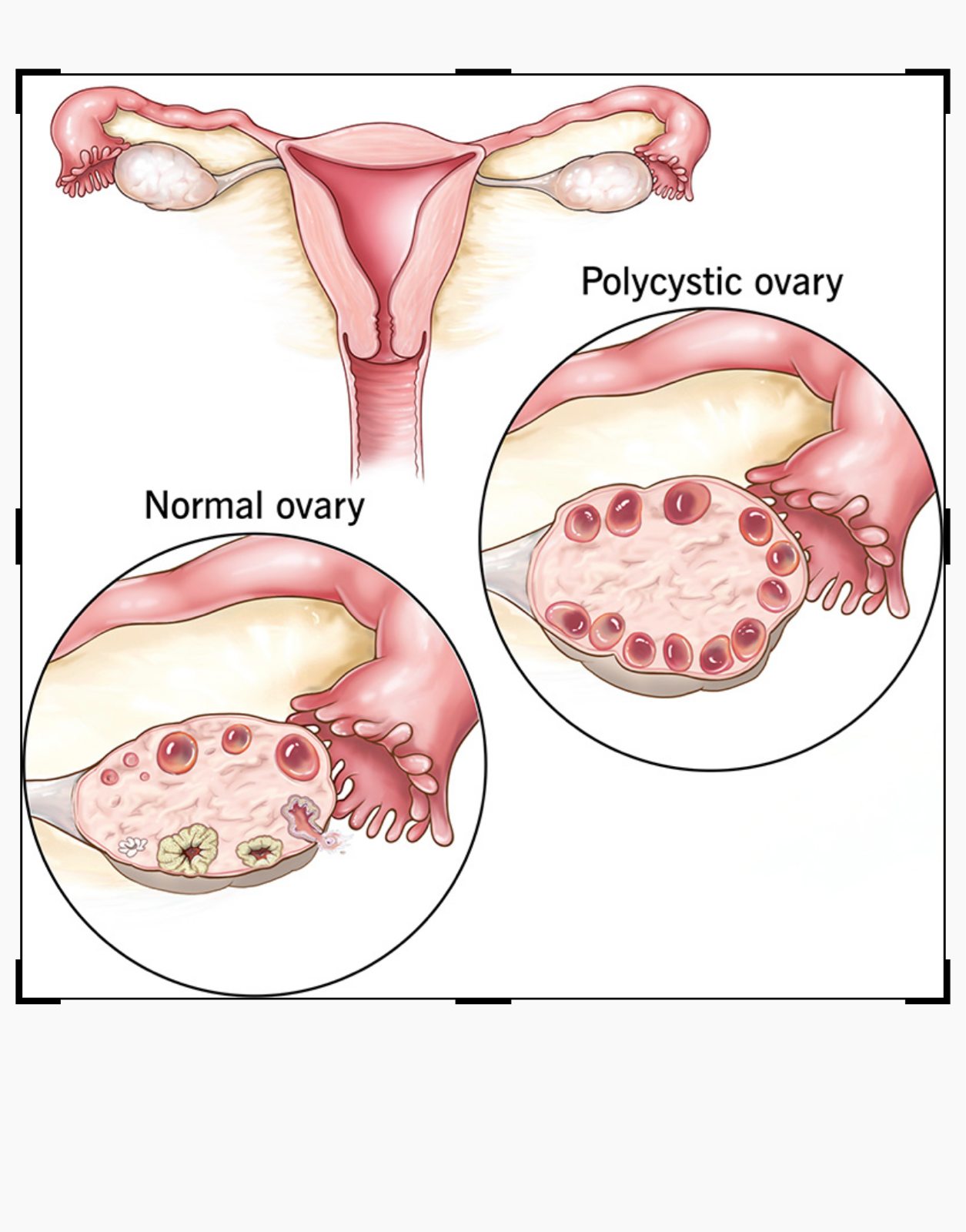+918043694530

This is your website preview.
Currently it only shows your basic business info. Start adding relevant business details such as description, images and products or services to gain your customers attention by using Boost 360 android app / iOS App / web portal.
ALL ABOUT #PCOS #FAQS

What causes PCOS? Although the cause of PCOS is not known, PCOS may be related to many different factors working together. These factors include insulin resistance, increased levels of hormones called androgens, and an irregular menstrual cycle. What are common signs and symptoms of PCOS? Common signs of polycystic ovary syndrome (PCOS) include the following: Irregular menstrual periods—Menstrual disorders can include absent periods, periods that occur infrequently or too frequently, heavy periods, or unpredictable periods. Infertility—PCOS is one of the most common causes of female infertility. Obesity—As many as 4 in 5 women with PCOS are obese. Excess hair growth on the face, chest, abdomen, or upper thighs—This condition, called hirsutism, affects more than 7 in 10 women with PCOS. Severe acne or acne that occurs after adolescence and does not respond to usual treatments Oily skin Patches of thickened, velvety, darkened skin called acanthosis nigricans Multiple small fluid-filled sacs in the ovaries What is insulin resistance? Insulin resistance is a condition in which the body’s cells do not respond to the effects of insulin. When the body does not respond to insulin, the level of glucose in the blood increases. This may cause more insulin to be produced as the body tries to move glucose into cells. Insulin resistance can lead to diabetes mellitus. It also is associated with acanthosis nigricans. What can high levels of androgens lead to? When higher than normal levels of androgens are produced, the ovaries may be prevented from releasing an egg each month (a process called ovulation). High androgen levels also cause the unwanted hair growth and acne seen in many women with PCOS. What can irregular menstrual periods lead to? Irregular menstrual periods can lead to infertility and, in some women, the development of numerous small fluid-filled sacs in the ovaries. What are the health risks for women with PCOS? PCOS affects all areas of the body, not just the reproductive system. It increases a woman’s risk of serious conditions that may have lifelong consequences. Insulin resistance increases the risk of type 2 diabetes and cardiovascular disease. Another condition that is associated with PCOS is metabolic syndrome. This syndrome contributes to both diabetes and heart disease. Some women with PCOS develop a condition called endometrial hyperplasia in which the lining of the uterus becomes too thick. This condition increases the risk of endometrial cancer. Women with PCOS also may be at higher risk of sleep disorders, such as sleep apnea. The risk of depression also is higher with PCOS. Are treatments available for women with PCOS? A variety of treatments are available to address the problems of PCOS. Treatment is tailored to each woman according to symptoms, other health problems, and whether she wants to get pregnant. What effect can weight loss have on women with PCOS? For women who are overweight, weight loss alone may regulate the menstrual cycle. Even a small loss of weight may be helpful in making menstrual periods more regular. Weight loss also has been found to improve cholesterol and insulin levels and relieve symptoms such as excess hair growth and acne. What can be done to increase the chances of pregnancy for women with PCOS? Successful ovulation is the first step toward pregnancy. For women who are overweight, weight loss may accomplish this goal. Medications also may be used to cause ovulation. Surgery on the ovaries has been used when other treatments do not work. But the long-term effects of these procedures are not clear.

